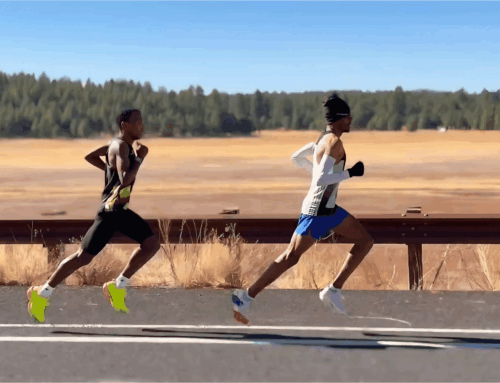
Think Long Term
It’s a long road to reach your full potential as a runner and longer term adaptations depend partly on how you treat your body. When planning out future racing/training always think long term and consider between training cycles as just as important as each training cycle. How you recover, learn from your previous training cycle and build on your progress are all keys to moving forward successfully.
Include Rest Periods
We’re big proponents of “active recovery” (cross training, short/easy runs) but there should always be planned rest-from-running periods throughout each year regardless of what type of race or how much volume you run per week. For instance, a cross country runner trains hard in the summer and fall and races a lot in season. It’s important mentally and physically to take time away from running for at least a week between seasons. After completing a marathon it’s important to take a week off from running regardless of how hard you trained for the race. We then recommend an active recovery period several weeks after that to maintain the right balance both mentally and physically long term.
Express Gratitude
Training should always bring a certain level of enjoyment and satisfaction. Enjoy the satisfaction of being fit, healthy and having the ability to train. Although it’s true you train to improve performance, many other benefits come from training as well; and if you don’t enjoy your training it’s less likely you will remain in the sport long term and realize your full potential.
Evaluate Your Previous Training Cycle
Take time to review how you responded to the training? How consistent were you? Don’t just assume that to improve you need to train harder. If you’re not performing better after six weeks of demanding training, or if your workouts aren’t feeling easier then maybe the added stress is not producing the desired results.
We often see runners make adjustments and progress by committing to keeping Easy runs EASY in their next training cycle, or by adding in more rest versus more training. Also, look at how much time you’re spending at different intensities, not just weekly mileage.
Make An Action List (Non-running specific)
What are you doing between seasons to make a difference before starting the next training cycle? Here are some questions to help draft that list:
- Can you make improvements in your diet?
- Are you strength training, doing enough strength training, doing the same strength routine for too long?
- Are you only working with a PT when you’re injured versus assessing and addressing weaknesses in the chain?
- Have you ever done a proper gait analysis?
- Are you getting adequate sleep?
- Are you cross training and what cross training can you add in to increase strength in new ways?





How do I find someone who can assess my overall strengths and weakness to create a good conditioning program? Thanks!
Hi Margaret, thanks for your comment. You can connect with running coaches who are also physical therapists on the VDOT Marketplace here: https://coaches.vdoto2.com/find-coach/physical-therapist
They might be able to help you.
I am grateful to you for the positive values you have added to my running life, my dear sponsor Coach Dr. Jack Daniels